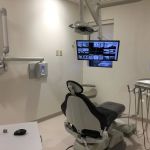
How to Overcome Fear of the Dentist: Expert Tips and Solutions for Dental Anxiety
- Understanding the Fear of the Dentist
- Why Dental Anxiety Affects So Many People
- Signs of Dental Phobia
- Solutions for Overcoming Dental Fear
- How to Choose an Anxiety-Friendly Dentist
- Sedation Options for Overcoming Dental Fear
- Real-Life Stories: Overcoming Dental Fear
- Steps to Feel Comfortable During Your Dental Appointment
- How to Maintain Regular Dental Visits Despite Fear
Understanding the Fear of the Dentist
Dental fear is a very real and common problem. For many, just thinking about the dentist’s office brings on feelings of dread and anxiety. Whether it’s the sound of the drill, the sight of sharp instruments, or the fear of pain, these fears can keep you from seeking necessary care.
It’s important to recognize that dental anxiety and fear are not signs of weakness. Many people struggle with these feelings, and acknowledging them is the first step toward overcoming them. Understanding what triggers your fear and seeking out the right solutions can make all the difference in your dental health.
Why Dental Anxiety Affects So Many People
Dental anxiety is far more common than you might think. According to studies, up to 75% of adults in the United States experience some level of dental fear, and 10% to 20% suffer from severe dental anxiety that prevents them from going to the dentist altogether.
The reasons behind dental fear vary from person to person. For some, it might stem from past traumatic experiences at the dentist, while for others, it may be linked to a fear of the unknown or general discomfort in medical environments. Whatever the cause, it’s important to realize that there is no shame in feeling anxious. The key is to find strategies that work for you and to seek help from professionals who understand your concerns.
Signs of Dental Phobia
Dental phobia is more than just feeling nervous before a visit. It’s an overwhelming fear that can cause panic, avoidance, and significant distress. Here are some common signs of dental phobia:
1. Extreme Fear of Dental Procedures
People with dental phobia often feel paralyzed by the thought of undergoing any dental procedure, whether it's a simple cleaning or a more complex treatment. The fear can cause them to avoid the dentist for years.
2. Panic Attacks Before or During Appointments
For those with severe dental fear, panic attacks can occur just thinking about their appointment. Symptoms might include sweating, rapid heartbeat, dizziness, or difficulty breathing.
3. Avoidance of Dental Visits
Many individuals with dental anxiety put off appointments for years, leading to worse dental health outcomes. This avoidance can sometimes spiral into more severe oral health issues.
Solutions for Overcoming Dental Fear
Overcoming the fear of the dentist is entirely possible with the right approach. Here are some effective solutions to help you manage and conquer dental anxiety:
1. Open Communication with Your Dentist
One of the most important steps in overcoming dental fear is talking to your dentist about your anxiety. A good dentist will listen to your concerns and make accommodations to help you feel more at ease during treatment. This might include explaining each step of the procedure or allowing you to take breaks when needed.
2. Relaxation Techniques
Deep breathing, meditation, and progressive muscle relaxation can be incredibly effective in calming your nerves before and during a dental visit. Practice these techniques at home so they’re second nature when it’s time for your appointment.
3. Cognitive Behavioral Therapy (CBT)
For those with more severe dental phobia, Cognitive Behavioral Therapy (CBT) has been shown to be effective in treating anxiety. CBT helps change the negative thought patterns associated with dental visits, making the experience less daunting.
4. Gradual Exposure
Gradual exposure to the dental office can also help reduce fear. Start with non-invasive visits, like consultations or just sitting in the waiting room. Over time, you’ll become more accustomed to the environment and may feel more comfortable with dental procedures.
How to Choose an Anxiety-Friendly Dentist
If you suffer from dental fear, it’s essential to choose a dentist who understands and accommodates your needs. Here’s how to find a dentist who can help you feel comfortable:
1. Look for Reviews and Testimonials
Research potential dentists online and read patient reviews that mention how they handle anxious or fearful patients. Testimonials can provide valuable insight into how the dentist approaches dental anxiety.
2. Ask About Sedation Options
Some dentists offer sedation options like nitrous oxide or oral sedatives, which can help calm your nerves during procedures. Be sure to ask about these options when making your appointment.
3. Visit the Office Before Your Appointment
Schedule a visit to the dental office before your actual appointment. This can help you familiarize yourself with the environment and ease some of your anxieties. Many anxiety-friendly dentists offer a tour of their office and a chance to meet the staff before you begin treatment.
Sedation Options for Overcoming Dental Fear
For those who experience severe anxiety, sedation dentistry can be a game-changer. Here are a few sedation options commonly offered by dentists:
1. Nitrous Oxide (Laughing Gas)
Nitrous oxide is a mild sedative that helps calm your nerves while keeping you awake and alert during the procedure. It’s fast-acting and wears off quickly after the treatment.
2. Oral Sedation
Oral sedation involves taking a pill before your appointment to relax you. This option is suitable for patients with moderate anxiety and allows them to remain awake during procedures while feeling relaxed.
3. IV Sedation
For those with severe dental anxiety, IV sedation can provide deep relaxation and amnesia during the procedure. You will remain unconscious during treatment and have little to no memory of the visit afterward.
Real-Life Stories: Overcoming Dental Fear
Real-life experiences can offer insight and encouragement for those dealing with dental anxiety. For example, Sarah, a 35-year-old woman, had avoided the dentist for years due to her fear. After seeking out a compassionate dentist and undergoing CBT, she was able to overcome her anxiety and feel more confident in her dental care.
Similarly, John, a father of two, used relaxation techniques and sedation dentistry to manage his dental phobia. Today, he enjoys regular dental check-ups without fear.
Steps to Feel Comfortable During Your Dental Appointment
Once you’ve taken steps to manage your fear, here are some tips to make each appointment more comfortable:
1. Bring a Friend or Family Member
Having someone you trust by your side can provide comfort and reduce anxiety. Ask a loved one to accompany you to your appointment.
2. Use Relaxation Techniques
Practice deep breathing or listen to calming music during your visit to help reduce stress. Some dental offices offer noise-cancelling headphones for added relaxation.
3. Focus on Positive Thoughts
Visualize a successful, pain-free experience at the dentist. Positive thinking can help shift your mindset and reduce fear during the visit.
How to Maintain Regular Dental Visits Despite Fear
One of the most important things you can do for your dental health is to maintain regular visits to the dentist, even if you experience fear. By incorporating the strategies above, you can begin to manage your anxiety and make dental visits a routine part of your health care.
Remember, the key is to take it one step at a time. Whether it’s choosing an anxiety-friendly dentist, using relaxation techniques, or exploring sedation options, there are ways to make dental visits less daunting. Don’t let fear stand in the way of your smile.







 Dr. David Newkirk - Cosmetic and General Dentistry5.0 (31 review)
Dr. David Newkirk - Cosmetic and General Dentistry5.0 (31 review) Smile Works Dentistry & Orthodontics in Lake Forest4.0 (35 review)
Smile Works Dentistry & Orthodontics in Lake Forest4.0 (35 review) Maple Brook Dental of MN4.0 (532 review)
Maple Brook Dental of MN4.0 (532 review) Frankfort Avenue Family Dental4.0 (405 review)
Frankfort Avenue Family Dental4.0 (405 review) Tender Smiles 4 Kids4.0 (450 review)
Tender Smiles 4 Kids4.0 (450 review) Bryn Mawr Dental Associates4.0 (493 review)
Bryn Mawr Dental Associates4.0 (493 review) The Importance of Oral Health Education During Pregnancy for a Healthy Pregnancy
The Importance of Oral Health Education During Pregnancy for a Healthy Pregnancy Best Tips for Brushing Your Teeth Properly for Healthy Gums: Essential Techniques for Oral Health
Best Tips for Brushing Your Teeth Properly for Healthy Gums: Essential Techniques for Oral Health Why Skipping Dental Checkups Can Lead to Bigger Oral Health Problems
Why Skipping Dental Checkups Can Lead to Bigger Oral Health Problems Advantages of Porcelain Dental Restorations
Advantages of Porcelain Dental Restorations How Can Diabetes Cause Tooth and Gum Problems? Preventing and Managing Oral Health Issues
How Can Diabetes Cause Tooth and Gum Problems? Preventing and Managing Oral Health Issues Healthy Habits for Promoting Good Oral Health and Hygiene: Tips for a Healthy Smile
Healthy Habits for Promoting Good Oral Health and Hygiene: Tips for a Healthy Smile